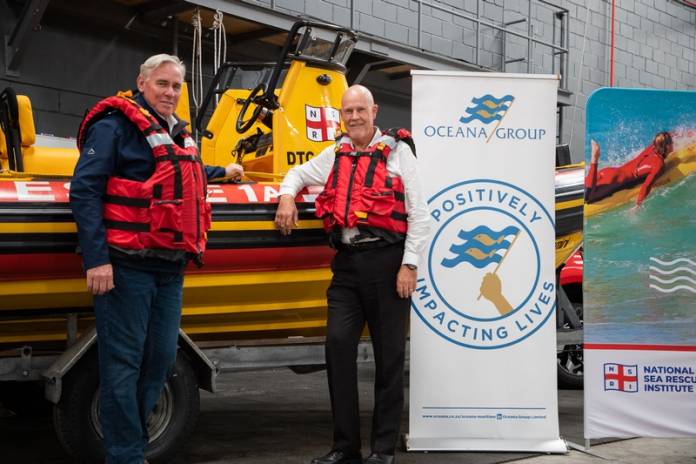
Heading to sea in a small boat to catch fish may sound like perfect weekend recreation for some, but it’s a tough, unpredictable way to make a living.
It is also dangerous. Conditions along South Africa’s notorious coastline can change quickly. Often small-scale fishers looking to put some food on the family table and sell the rest of the catch don’t have much, or all-too-often, any safety equipment on board. They have little if any first-aid training and many are unprepared to deal with emergencies. Some are not able to swim.
The risks are not exaggerated. According to the FISH Safety Foundation, an international non-profit aiming to foster a positive safety culture in the sector, fishing is amongst one of the most hazardous occupations.
This World Drowning Prevention Day (25 July) an innovative programme marks two years of providing local small-scale fishers with the information, knowledge and skills they need to make a better living, more safely.
Called Co-operative Sense, it’s a partnership between Africa’s largest fishing company Oceana, the National Sea Rescue Institute (NSRI), the Department of Forestry, Fisheries and Environment (DFFE) and Dyna. Together they deliver a series of nationwide training workshops for fishing co-operatives.
An important focus of the workshops is sea-safety training and first aid, which the NSRI presents. The goal is to empower fishers to understand safety protocols, before they go to sea, when at sea and how to handle emergencies.
Additionally, the programme provides practical guidance on running a successful, financially strong fishing co-operative.
Zodwa Velleman, Oceana’s Corporate & Regulatory Affairs Executive, explains that collectively the different aspects of the programme bring much needed skills and support to people who earn a living at sea.
“Safety at seas and running a financially successful co-operative are intertwined,” she explains. “Not only do the courses ensure the participants are aware of and have the knowledge to deal with safety issues, but fishers who are earning a reasonable living though a financially sustainable cooperative are less likely to take risks and venture out in dangerous conditions because they’re desperate.”
To date more than 800 small-scale fishers across the Eastern and Northern Cape and KwaZulu Natal have participated in the workshops, which are delivered in their preferred language: isiZulu, isiXhosa, English or Afrikaans.
This year the workshops will be rolled out in the Western Cape following the recent conclusion of the small-scale fishing right process.
In addition, the Oceana Maritime Academy provides water safety and first-aid training to the community of Hout Bay, where it is situated.
“Our longstanding partnership with the NSRI on Co-operative Sense and a host of other programmes (including drowning prevention programme in communities) is part of our responsibility to the coastal communities where we operate. While we’re involved in everything from school feeding programmes to training and job-creation initiatives, none are more important than ensuring the safety of the breadwinners who depend on the sea to support their families,” says Velleman.
Oceana has supported the NSRI for 20 years, both financially and as a maritime safety advocate. It recently renewed this commitment and, in addition to the existing programmes, is looking to start a water-safety education programme for vulnerable children in several West Coast communities.

